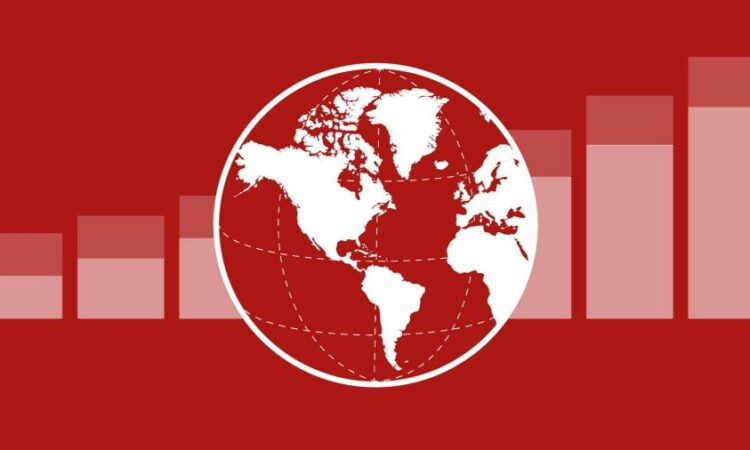
Receive free Markets updates
We’ll send you a myFT Daily Digest email rounding up the latest Markets news every morning.
Wall Street’s main indices rose on Tuesday after the release of economic data that highlighted the continued resilience of the US economy despite a higher interest rate environment.
The S&P 500 closed 1.1 per cent higher, while the tech-focused Nasdaq Composite rose 1.6 per cent, both rebounding from two successive sessions of declines.
The gains were relatively broad, but heavyweight tech stocks lead the way higher. Tesla added 3.8 per cent, Nvidia rose 3.1 per cent, and Amazon gained 1.5 per cent. The NYSE Fang+ index, which tracks some of the biggest tech companies, gained 2.2 per cent.
The rally was spurred along by multiple data releases on Tuesday morning that showed the US economy remained resilient despite the aggressive tightening in monetary policy by the Federal Reserve over the past 15 months. Consumer confidence reached its highest level since 2022, purchases of new homes rose at the fastest rate in a year and durable goods orders rose by more that estimates.

“We had some pretty solid data across the board. And previously we had a week of weakness, which we hadn’t had in a while . . . It was animal spirits fuelled by better data after a week of selling,” said Lou Brien, a strategist at DRW Trading.
The Treasury market took a more pessimistic view of the data. The two-year Treasury yield, which moves with interest rate expectations, rose 0.09 percentage points to 4.76 per cent as investors bet that the strong data would force the Fed to raise interest rates further.
In Europe, a gain in technology stocks was not enough to bolster the entire market. The region-wide Stoxx 600 ended the day roughly flat, while the Stoxx 600 technology index rose a quarter point.
The European stock moves came as traders received fresh signals that the European Central Bank was ready to lift interest rates again this year to combat inflation. Christine Lagarde, ECB president, said its “job is not done” and indicated there would be another rate rise in the eurozone in July. The ECB in June raised its benchmark deposit rate by a quarter point to 3.5 per cent, its highest level in 22 years.
Eurozone inflation figures due on Friday are expected to show that price growth slowed to 5.6 per cent in the year to June, down from 6.1 per cent a month earlier, according to economists polled by Reuters.
Oil prices fell, puncturing a shortlived rally after the weekend’s armed mutiny in Russia raised serious questions about the outlook for President Vladimir Putin’s regime and doubts over crude output from one of the world’s top suppliers.
International benchmark Brent crude settled 2.6 per cent lower at $72.26 a barrel.
In China, equity markets were up, with Hong Kong’s Hang Seng index rising 1.9 per cent and China’s CSI 300 gaining 0.9 per cent.
Investors welcomed the assurance that China’s officials intended to support growth in the world’s second-largest economy, which has struggled to pick up steam this year since reopening after the coronavirus pandemic.
China’s premier, Li Qiang, gave a speech at the World Economic Forum’s Annual Meeting of the New Champions, known as the “Summer Davos”, relaying Beijing’s intentions to enact more effective policies to bolster domestic demand.
Policymakers this month cut benchmark interest rates in an attempt to stimulate growth, but economists anticipate a range of further support measures over the coming months.





